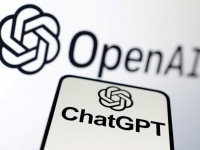
According to the report of Yassad News, quoted by Interesting Engineering, according to informed sources of this newspaper, it is unhappy that OpenAI (the owner of GPT Chat) does not pay for the use of its content, and it is afraid that the mentioned chatbot will Providing answers based on its reports will reduce the publication’s online traffic. The New York Times and OpenAI have been negotiating for a few weeks now to reach an agreement, but it seems that the negotiations have reached an impasse and the publication is now considering legal options. A complaint by the New York Times is considered a turning point in the field of generative artificial intelligence, which produces new content based on available data. GPT Chat is one of the most advanced examples of this technology
And it can produce coherent and relevant texts on various topics using a huge repository of data extracted from the Internet. However, the data used includes millions of articles and reports from the New York Times and other publications, which are likely to be copied without the publisher’s permission. The Times claims that this violates its intellectual property rights and that Chat JPT competes with journalism by using its reports as a source of information. The publication is particularly concerned that users will be less motivated to visit the website and read its articles if they can receive responses from JPT Chat based on its reports. This harms the income and reputation of the newspaper.
Because there is no precedent for such a lawsuit, it is not possible to determine the legal implications for generative AI in this context. However, experts believe that the Times will have a strong case against the company if it can prove that JPT Chat has violated copyright laws.

